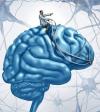some proper science of free will...or the feeling of free will - Discussion
some proper science of free will...or the feeling of free will

Jano Pavuk, modified 4 Years ago at 11/29/19 1:44 AM
Created 4 Years ago at 11/28/19 5:03 PM
some proper science of free will...or the feeling of free will
Posts: 53 Join Date: 11/6/17 Recent PostsSome 12 years ago, pondering this topic literally almost stopped me from living. I escaped the trap only thanks to a non-intellectual solution. But now, we might get also a rational answer/solution...
Some highlights from the article which is quite fresh, March 2019
Overall, it hopes to establish a new field in the study of the brain: the neurophilosophy of free will.
Now, a new research program spanning 17 universities....neuroscientists and philosophers together. The collaboration, the researchers say, can help them tackle two important questions: What does it take to have free will? And whatever that is, do we have it?
Ultimately, we’d like to get at two questions. One is, what is required for people to have free will? That is a philosophical question that our philosopher colleagues should come to an agreement on. As a scientist, I don’t know what it entails to have free will. Then there’s the second question, which is, whatever that thing is that is required for free will, do we have that? Do humans possess that? This is an empirical question. It may be that I don’t have the technology to measure it, but that is at least an empirical question that I could get at.
.Sounds, like a great effort.....JUST.......WHY NOT TO also BRING IN MEDITATORS?

Jano Pavuk, modified 4 Years ago at 11/28/19 5:16 PM
Created 4 Years ago at 11/28/19 5:16 PM
RE: some right science looking into free will AT LAST
Posts: 53 Join Date: 11/6/17 Recent Postshttps://www.theatlantic.com/health/archive/2019/09/free-will-bereitschaftspotential/597736/

Jano Pavuk, modified 4 Years ago at 11/28/19 5:41 PM
Created 4 Years ago at 11/28/19 5:33 PM
RE: some right science looking into free will AT LAST
Posts: 53 Join Date: 11/6/17 Recent Posts5 Questions about "Neuroscience and Philosophy of Free Will"
1. What do you see as the biggest promise of the field of neuroscience of free will?
2. What are the greatest challenges that you think this field faces?
3. Please opine on how can an abstract notion like free will be probed experimentally.
4. What are the advantages and challenges in collaborations between neuroscientists and philosophers when studying free will?
And my favorite one: Starts at 1:06:00
5. On this note, do you think we have free will?
https://www.youtube.com/watch?time_continue=2&v=kjKGJ5-htZE&feature=emb_logo
As I see from the popularity of the video - 43 views and 2 likes in past 6 months....
Is it just my impression, or is it actually true that nobody wants to really go into this - even though it is arguably one of the most important - if not THE most important question for humanity? ..not getting close to it, not touching it....not even with a really really loooooooooooooooooooooong stick attached to another equally long stick....attached to another infinitely long stick
Is it so painful to think about...is the cognitive dissonance just too much? Are there really no proper incentives for the society to actually seriously study this?

Mista Tibbs, modified 4 Years ago at 11/30/19 5:06 AM
Created 4 Years ago at 11/30/19 1:14 AM
RE: some proper science of free will...or the feeling of free will
Posts: 81 Join Date: 8/17/18 Recent PostsMeditation is still largely seen as religious and is therefore considered to be invalid as a field of research. The progression towards acceptance is steady as independent researchers realize that meditation is correct in principle and if not, in detail.
So back to the topic. These scientists cannot even come to a conclusion as to what free-will is. I think we all understand what it means as a concept. Philosophy states that there is no escaping fate. Fate is defined as the development of events beyond a person's control, regarded as determined by supernatural forces. Up until a few decades ago, emotions themselves were thought of as an inexplicable phenomenon... Even to this day, some people don't count psychology as a science.
Now let's look at what it means to be a Buddha. Buddha means to above the mind, to no longer be a predicate of one's evolutionary biology. A Buddha should be a proponent of free will then. There are components to this mechanism that can be looked at separately...
I'll use myself as a guinea pig for this if that's ok with you, but all I am is a firm believer in free-will. A Buddha would be much much further along
1. The organism must have broken the bond with their survival & reproductive instincts
From birth until the moment I met my love, I had avoided sexual exploits. Unfortunately, my love passed away before we could even consecrate our affection. And years following that I had yet still avoided sex. Then one day I inquired within myself, I never believed in any person being "the one" so why did I deprived myself of such a beautiful act. Because I decided to, and so I decided to finally indulge because I wanted to. Not because my hormones were running rampant hijacking my mentality. You can be fully be absorbed in the aesthetics and beauty of what you're engaging in without having attachment.
The path I am on has given me such a wide experience of life. Thankfully I have been on many occasions, on the verge of death and have survived every time. There is a pattern of fixed responses that only happen on the cusp of life. If one so happens to experience these unique stimuli and live, you feel a metaphysical tether being cut. You can feel inklings of this in meditation. Since then, I've noticed the mind is no different than a spoiled child that craves a conditioned behavior. So I don't satiate those gross desires in my life. I lean against what is most beneficial for the growth and development of me as a human and an individual.
2. Unconscious reactivity
As in Lebit's expiriments "the unconscious processes in the brain are the true initiator of volitional acts, and free will therefore plays no part in their initiation"
I think this can be attributed to the proportions of humans that don't ever in their lifetimes ATTEMPT to become conscious of their minute happenings or even build a neural connection with the body. I have an acutely high pain tolerance. Pain to me is perceived as a collection of firing neurons in the spot of injury, and in my cerebrum. Pain is a sharp sensation, this sharpness doesn't translate to "hurt". Whether I react to this sensation is, for the most part, my decision, not my mind's. If I am alone at home and get hurt, I don't react to it, I simply observe the sharp texture of it and watch as it passes, its very interesting every time.
The reason I say for the most part is that there are still harsher degrees that are outside my bounds, at least for now. I like to think that however good you are at something, there must always be someone out there significantly more proficient at it.
But if I am in public or out with friends and some incident takes place, I'll still react or exclaim an ouch just because people wouldn't understand. Though with some friends that do understand I won't have to, its all about fitting into society. About gauging each situation and acting most appropriately, and that's my decision.
3. Perceptions of reality.
Perceptions are just controlled hallucinations, hallucinations are just uncontrolled perceptions. Did you know that if you think strongly enough about pizza, you can taste it? The thoughts stimulate the salivatory glands and excite the neurons. The easiest to try is spicey food though. It can be anything for that matter as long as it has support in the 8 senses. But on a grander scale, if I can close my eyes and "transport" myself to a world that bends to my whim, if everything in my human experience is governed by three chemicals... dopamine, oxytocin, and serotonin, and those can be manipulated then why shouldn't I classify those experiences as real. If everything that's "real" is just these three chemicals.
I was walking down the street this very day and a homeless man stopped me to rave about Jesus. He told me Jesus IS god, I told him that "God" is inside us all to which he exclaimed, "Well can you create a star?!?" "My friend..." I said, "I can create an entire universe in my imagination." sorry, free will wasn't my fault.
I have heard talk of some Kashmere scriptures and I think Jesus may have just been a meditator talking to people who didn't know anything about meditation. but I can't solidly prove anything anyway, that's just a hypothesis.
4. DEATH, the ultimate exercise in free will
I have been in points in my meditation where "I" no longer have to breathe, The best way I can explain it is that just intuitively, I know this body isn't my true essence and the true "I" will be fine even if I leave this body. I have concluded that rather than succumbing to old age, I will be the one to decide when I drop this body. Even if I am swallowed by an earthquake, I just need to close my eyes and drop this "shell".
I believe in not believing in anything until it enters your own experience. And I haven't died yet, obviously, so I have nothing to say about reincarnation or whether things just cease. I'll know when it happens, but it's my decision when I'll receive that lesson.
"Is it too painful to think about... is the cognitive dissonance too much"
For mainstream scientists, it's a resounding yes.
Creativity is only painful when your IQ is below room temperature. I wouldn't immediately take for a fact what any scientists have to say. Everything should be worth considering and speculation is fine on its own. Outright doubt is not.





